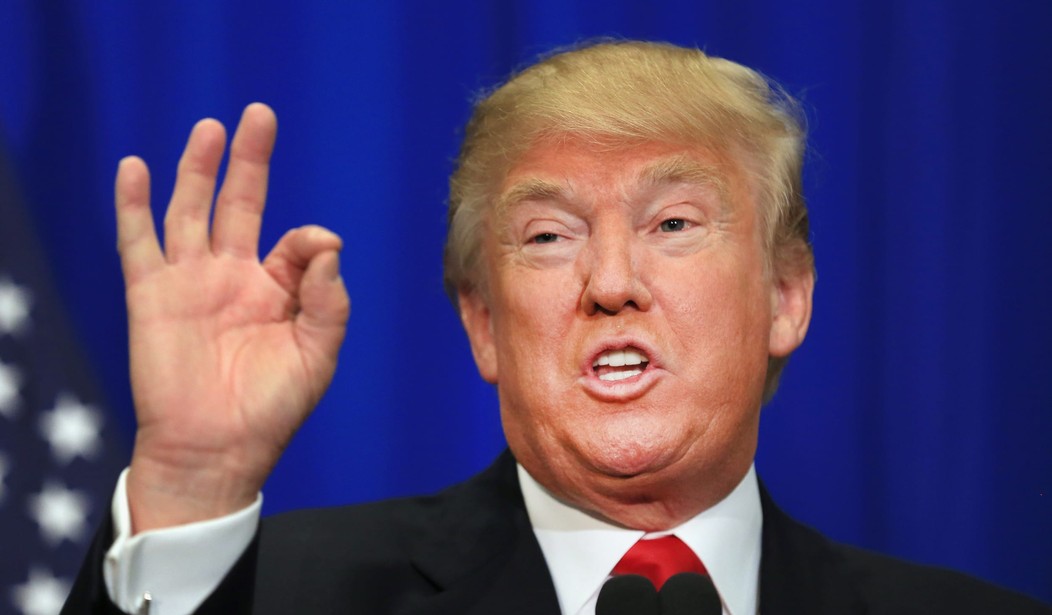Looking back on it now, who do you think provided the best commentary on the run-up to the election?
And a related question: who has provided the most insightful commentary on the aftermath, i.e. “Why Trump Happened,” “What His Victory Means,” “What the Protesters and Crybullies Want”?
It’s amusing now to replay the scenes of those Important People who assured us that Trump, the clown, could never win. My favorite headline was from The Nation: “Relax, Donald Trump Can’t Win.”
My favorite election clip was provided by Bret Stephens (who was joined in his folly by many others). And if you just want to listen to ten minutes of fatuousness, here’s an audio clip of the Wall Street Journal’s national politics editor Aaron Zitner speaking on Election Day. Zitner was 100% wrong, but what’s amusing is the supreme if casual confidence with which he delivers his dicta: “Of course Hillary will win. Any fool knows that. All the best polls show that she is a shoo-in. All the most perceptive people (like moi, A. Zitner) agree.” Et cetera.
But if the MSM was almost exclusively a source of schadenfreude, who was out there telling the truth?
There were several percipient commentators. But I want to mention one who may be overlooked because the public regards him as an entertainer, not a sage. I mean Scott Adams, the creator of the Dilbert comic strip. Adams, at his blog, has been providing some of the most original and most penetrating commentary on the whole Trump phenomenon.
I was, I admit, a little taken aback when I first encountered his description of Trump as a “Master Persuader” (see here, for example, or here), but the more I think about it, the more right I think he is. Trump on the stump was not articulate in any traditional sense. He was repetitious, digressive, given to stumbling about in sentence fragments. But he honed a message that resonated deeply with the voters.
Adams noted the following in a column posted yesterday:
If you believe Trump’s skill for persuasion wasn’t the key variable in his win, you have to imagine some other candidate beating Clinton with the same set of policies as Trump. Personally, I can’t imagine it.
I commend Adams’ blog to you: among other things, he shows that the people who are protesting against Trump are not really protesting against Trump.
They’re protesting against a hallucination they call “Trump” that has almost nothing to do with the man who is now the president-elect.
“How,” Adams asks, “do you explain away Trump’s election if you think you are smart and you think you are well-informed and you think Trump is OBVIOUSLY a monster?”
You solve for that incongruity by hallucinating — literally — that Trump supporters KNOW Trump is a monster and they PREFER the monster. In this hallucination, the KKK is not a nutty fringe group but rather a symbol of how all Trump supporters must feel. (They don’t. Not even close.)
In a rational world it would be obvious that Trump supporters include lots of brilliant and well-informed people. That fact — as obvious as it would seem — is invisible to the folks who can’t even imagine a world in which their powers of perception could be so wrong. To reconcile their world, they have to imagine all Trump supporters as defective in some moral or cognitive way, or both.
I think this correct. And I am delighted to see Trump circumventing that hallucination so skillfully.
Forget about the Soros-funded protests: those are already dissipating. Perhaps there will be a brief recrudescence at the inauguration, but the street action is already looking sillier and sillier as Trump is acting more and more presidential.
The really important action is with respect to the MSM. Just yesterday, Trump convened an off-the-record meeting with anchors and executives from the top five networks to complain about the unfair coverage he had been receiving.
CNN reported that this meant Trump was off to a “rocky start” with the media. That’s hilarious.
Why? Because no one cares what CNN thinks about its relationship with Donald Trump.
To prove the point, Trump circumvented the media altogether yesterday when he released via YouTube a clip of him outlining some of the things he hoped to accomplished in his first 100 days. It all revolved around a “simple core principle,” i.e., “putting America first.”
What a novel idea, but not one that Wolf Blitzer or Chris Matthews can get his head around.









Join the conversation as a VIP Member